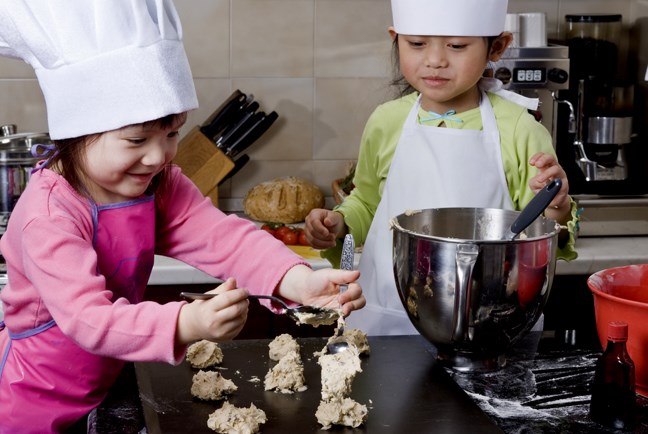On Thanksgiving you will likely find yourself around a table covered with all kinds of great foods. If you’re fortunate there will be friends and family members joining you for the feast. When that’s the case you feel grateful for food, family, and, hopefully, good health.
Our children, on the other hand, may just take this plenitude for granted. If we want them to appreciate what they have, we need to teach them.
Toddlers can understand that Mom and Dad do things for them but they can’t really articulate or appreciate these actions. As they get a little older they can talk about being thankful for the people in their lives and the gifts they receive.
It’s a process and the best way to teach our kids gratitude is to model it. So say please and thank you to them (“Thanks for putting your cup in the sink, that was really helpful.”), and say please and thank you to each other.
The more kids see that behaviour in their parents the more they will emulate it.
When kids become preschoolers you should make saying please and thank you a normal and expected part of asking for things. And once they know that, tell them that you will not hear them if they don’t ask properly. Constantly reminding them allows them to simply forget because you are doing the remembering.
We need to make gratitude more than rote words. So chat about things you appreciate during the day. “Look at the lovely sunset, aren’t we lucky we can see it.” “We’re so fortunate to have good friends who come over to visit with us.”
Having kids do chores and then expressing our appreciation for their effort will help them understand that all these jobs take some effort. But when we work together we are grateful for the help. It’s a challenge because having young kids help is not usually time efficient. It is so tempting to do it for them and avoid the mess and bother of having a three-year-old mix the pancake batter. But when we ask him to help he learns that all the household jobs take some effort. He then appreciates what you do and you express gratitude for his help.
When you donate toys or clothing to less fortunate kids let your kids know what you’re doing and why you’re doing it. Often we are generous but our kids don’t know about it. Or, if you make a donation to the food bank when you’re grocery shopping, talk about what you’re doing. Don’t make too big a deal of it but do mention that you’re making the donation so kids who are hungry will have food.
One of the most challenging responsibilities is to insist that your kids say thank you for gifts. When my grandson was opening his birthday gifts his Mom had him notice who gave him each gift and thank them by name.
When gifts arrive from out of town the kids need to write thank-you notes. Get them to write a note or send a picture if they’re too young to write. Email is okay but snail mail letters are more precious and will be kept by their recipients.
When kids have their every wish granted, it’s hard for them to understand being grateful, so practise saying no. They may want a toy, video game or candy and they may want it now - but the answer is no. Saying no to every whim makes saying yes that much nicer and your child will learn to appreciate what he is given.
And be patient. It takes time for gratitude to develop. When kids learn to appreciate their good luck, to enjoy what they are given, to participate in the work needed to run the house, they will grow to be appreciative young men and women.
Kathy Lynn is a professional speaker and author of Vive la Différence, Who’s In Charge Anyway? and But Nobody Told Me I’d Ever Have to Leave Home. If you want to read more, sign up for her informational newsletter at parentingtoday.ca.



